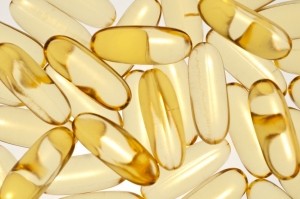Olive oil may protect against damages of air pollution: EPA study

Exposure to air pollution, and the tiny particles from burning fuel in cars and other vehicles in particular, can affect the function of cells lining blood vessels (the endothelium) leading to endothelial dysfunction, which in turn could detrimentally affect cardiovascular health.
New data published in Environmental Health Perspectives indicated that three weeks of supplementation with olive oil may counter these detrimental effects, and attenuate endothelial dysfunction.
On the other hand, no beneficial effects were observed for fish oil supplementation under the conditions of this study, reported scientists from the EPA, the University of North Carolina at Chapel Hill, and TRC Environmental Corporation.
“These data, therefore, suggest that olive oil supplementation should be further examined as a possible intervention to protect against the adverse vascular effects of air pollution exposure,” wrote the researchers.
Mechanism
The researchers did not investigate the mechanism of action of olive oil, but they did postulate that oleic acid may be the key bioactive.
“The oleic acid in olive oil has antioxidant and anti-inflammatory properties, and olive oil supplementation has been shown to improve endothelial function and lipid profile and lower the risk of coronary heart disease events,” they wrote.
Other studies have already found that olive oil may improve endothelial function, increase flow-mediated dilation (FMD), and decrease blood pressure in healthy and mildly hypertensive subjects.
“Our finding suggests that 4 weeks of dietary olive oil supplementation attenuate particulate matter-induced reductions in FMD, possibly due to the effect of olive oil to protect against the adverse effects of particulate matter exposure on endothelial function,” they said.
Another possible mode of action is anti-inflammatory effects by compounds like oleic acid, or for an effect on cholesterol levels.
Study details
The researchers, led by the EPA’s Dr Haiyan Tong, recruited 42 people aged about 58 and randomly assigned them to receive no supplements, or supplements of olive oil (3 grams per day, with fatty acid content composition of 73% oleic acid and 12% palmitic acid), fish oil (3 grams per day, providing 1,230 mg EPA and 822 mg of DHA). The supplements were provided by Pharmavite LLC.
The participants consumed the supplements for four weeks prior to a two hour exposure to air with particulate matter. Endothelial function was assessed before, immediately after and 20 hours after exposure.
Results showed that endothelial function, as measured by FMD of the brachial artery, was significantly reduced in the no supplement group by about 20%. The fish oil group also experienced significant reductions in FMD of about 14%, said the researchers. However, FMD decreased by 7.6% in the olive oil group, but this was not a statistically significant reduction.
Exposure to the air pollution also increased biomarkers of inflammation in the no supplement group (by 17%), but these increases were not seen in either the fish oil or olive oil groups.
“These findings provide the basis for a future cohort study focusing on between-group comparisons in order to confirm and further evaluate olive oil supplementation as a protective intervention against the adverse health effects of particulate matter inhalation,” wrote the researchers.
Fish oil
Commenting on the lack of an effect by fish oil, Dr Tong and co-workers said that, while fish oil has been reported to improve vascular health in people with abnormal blood lipid levels (dyslipidemia), heart failure, and diabetes, results from health subjects have been inconsistent.
“In general, studies have shown that EPA and DHA levels in blood are not linked to FMD in normal healthy adults,” they wrote. “Consistent with these reports, in the present study we did not observe a significant benefit of 4 weeks of fish oil supplementation on [concentrated ambient particulate matter]-induced reduction in FMD.”
Source: Environmental Health Perspectives
Volume 123, Number 11, Pages 1173-9. doi: 10.1289/ehp.1408988
“Dietary Supplementation with Olive Oil or Fish Oil and Vascular Effects of Concentrated Ambient Particulate Matter Exposure in Human Volunteers”
Authors: H. Tong

















